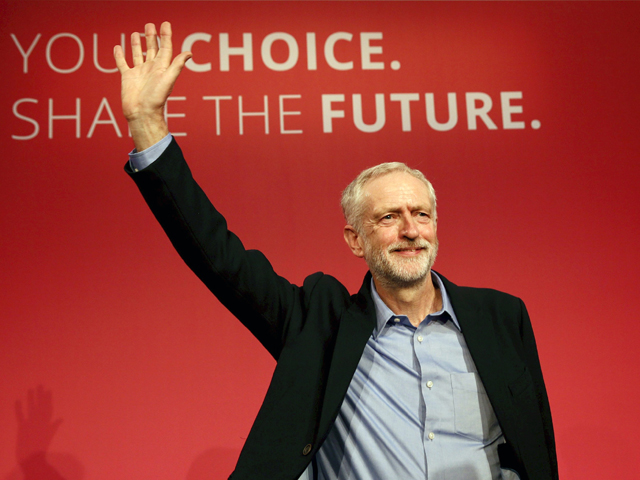
If you are a Muslim and wear a headscarf, you cannot work for Abercrombie and Fitch
The only reason Elauf was turned down was because they suspected that she was Muslim and would wear the head scarf.
When I think of Abercrombie and Fitch, the first thing that comes to my mind is the endless list of ridiculously good looking models from the catalogue; shirtless with washboard abs at the entrance, as well as those assisting inside.
Mike Jeffries, the former CEO of the company, had succeeded in creating a world that was cool and exclusive; something everyone in their teens wanted to be a part of.
As Jeffries said,
“In every school, there are the cool and popular kids, and then there are the not-so-cool kids.”
Jeffries took great pains to explain that his brand was not for everyone,
“Candidly, we go after the cool kids. We go after the attractive all-American kid with a great attitude and a lot of friends. A lot of people don’t belong [in our clothes], and they can’t belong.”
In his opinion, the key to drawing his ideal customer base was hiring physically attractive staff members.
“That’s why we hire good-looking people in our stores,” he once said. “Because good-looking people attract other good-looking people and we want to market to cool, good-looking people.”
It was obvious that physical appearance was of utmost importance to Jeffries.
It’s been alleged that when he would visit stores, he was more concerned with how the models looked and the stage setting, rather than focusing on more pressing concerns such as stock take and till discrepancies. This same philosophy, which was once so integral to the brand’s success, is also the key to its apparent modern day decline.
The brand has failed to evolve with changing times and perceptions, and has been punished for it by its customers moving on to more socially and economically relevant alternatives.
Kids these days are more comfortable in their own skin. Exclusionary practices and the appearance of someone looking down at them is a huge turn off. With no shortage of other similar brands in the market, being rigid and stagnant in one’s approach in today’s world is akin to jumping in front of a running train of progress.
Apart from people’s more informed perceptions, their fundamental understanding of everyday rights afforded to them by the constitution and federal law is more prevalent than ever.
So when Samantha Elauf, a Muslim applicant, was allegedly turned down for a role at the store for wearing a hijab, despite impressing the assistant manager who interviewed her, she knew she was well within her rights to take them to court.
“I am not only standing up for myself, but for all people who wish to adhere to their faith while at work,” said Elauf. “Observance of my faith should not prevent me from getting a job.”
The case has reached all the way to the Supreme Court, and reportedly, the majority of the Supreme Court justices appear to be siding with her. As Justice Ginsburg said, companies are compelled to allow exceptions to accommodate religious beliefs, even if it goes against their company policies.
“They don’t have to accommodate a baseball cap. They do have to accommodate a yarmulke,” Ginsburg said.
The “mythical preppy” dress code enforced by Abercombie and Fitch was also derided even by the more conservative justices. The company itself is arguing that Elauf never asked for religious exception, and that her Muslim faith was only guessed by the management. Some of the justices appeared more apprehensive of ruling in favour of Elauf because it might set a precedent forcing employers to stereotype or guess potential employees’ religious affiliations, which might be difficult and awkward during the hiring process.
The way around it, as was suggested, was that employers ask the potential employee if they were comfortable with the workplace policies in place, and leave it to them to point out any potential need for religious accommodation.
Abercombie and Fitch’s case was not helped by the admission by the “honest” interviewer, Heather Cook, who admitted that the only reason Elauf was turned down was because they had suspected that she was Muslim and would need to wear the head scarf.
Most companies do not tell job applicants why they had been turned down.
As Justice Sotomayor said,
“The only reason you have a suit here is because she was honest.”
The Supreme Court will give its ruling on the case some time near June. It is heartening to see that the religious rights of minorities are being defended so vociferously, something I can only dream to see happen in Pakistan as well one day.
We all get upset when we hear of stories like Judge Juliana Eliana Marengo, in Canada, berating a single mother in court for not being suitably dressed for court, just because she was wearing a hijab, but we turn a blind eye to the plight of the suffering minorities due to religious and social discrimination in our own country.
Until we feel as strongly about how they are treated in Pakistan, as we do about how fellow Muslims are treated in non-Muslim countries abroad, we will be considered to be quite hypocritical.




COMMENTS (75)
Comments are moderated and generally will be posted if they are on-topic and not abusive.
For more information, please see our Comments FAQ